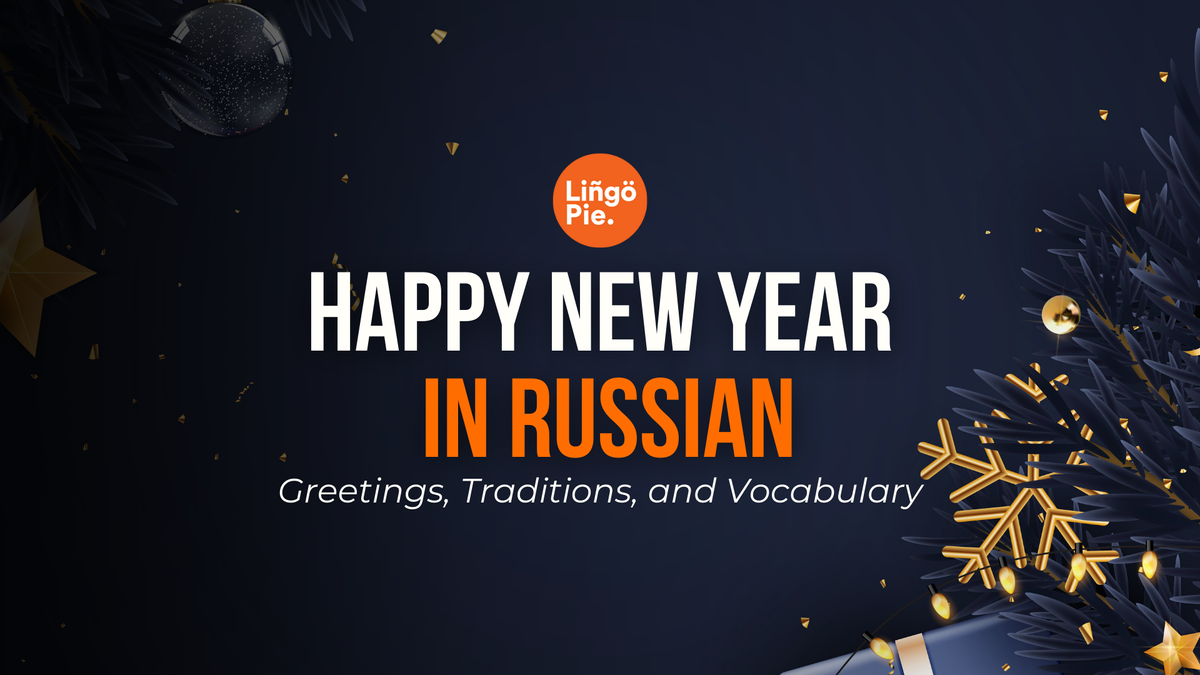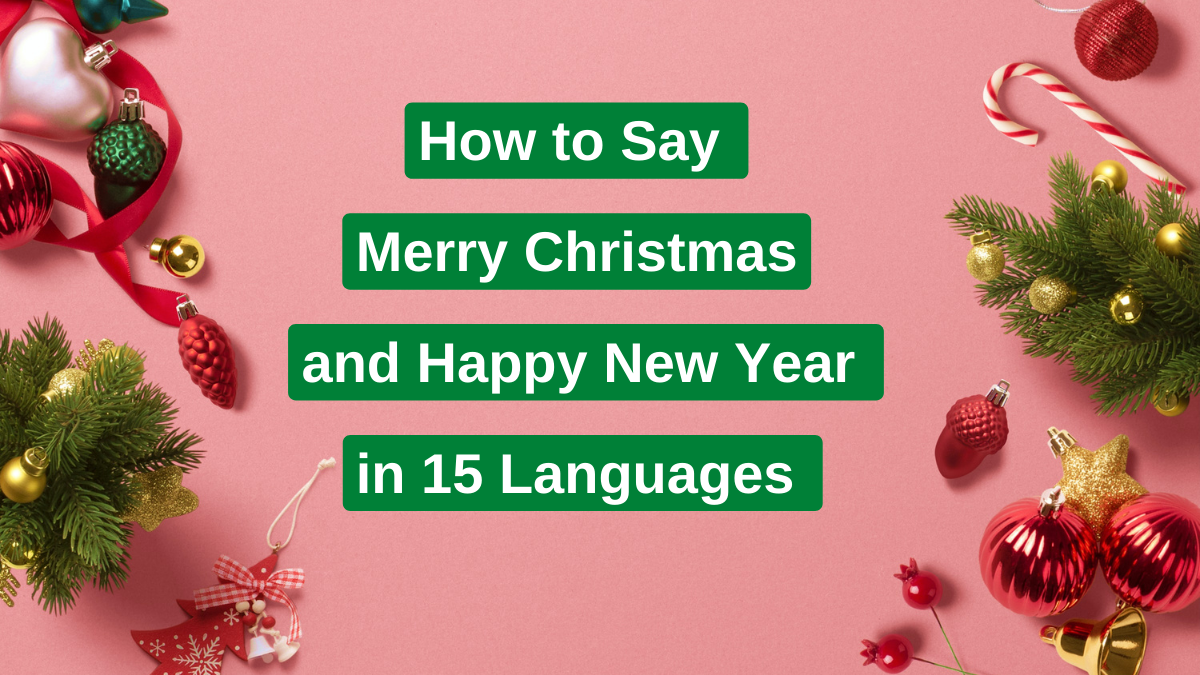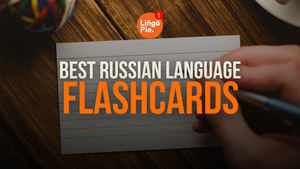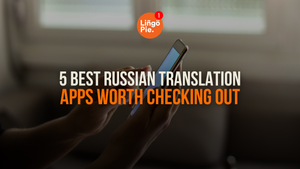New Year’s Eve is one of the biggest celebrations of the year in Russia. It’s a time for family, good food, and wholesome traditions that bring people together. I’ve always been curious about Russian culture, and learning about their New Year’s traditions has been one of the best parts of exploring the language.
In this article, I’ll show you how to say “Happy New Year” in Russian, share a few key phrases, and walk you through some fascinating traditions. Whether you're learning Russian or just want to know more about this holiday, we've got you covered. Let’s get started!

How To Say Happy New Year In Russian
If you want to wish someone a happy new year in Russian, simply say:
С Новым Годом! (S Novym Godom!) which means “With the New Year!” ( Snoh-veem Goh-duhm.)
This phrase is used in both formal and casual settings, making it the perfect all-around greeting for family, friends, and colleagues.
If you want to use another phrase, you can say: Счастливого Нового Года! (Schas-tee-lee-vuh-vuh No-vo-vuh Goh-duh) which means “Wishing you a happy New Year!” This greeting feels more personal and is great for cards or special messages.
Russian New Year Traditions
Russia celebrates New Year’s Eve with traditions that blend old-world charm with modern celebrations. Unlike many countries where Christmas takes center stage, New Year’s Eve is Russia's most important winter holiday. Let's take a look at some of the traditions surrounding this day!
Ded Moroz And Snegurochka
Ded Moroz (Grandfather Frost) is Russia’s version of Santa Claus but with a twist. He’s accompanied by Snegurochka (the Snow Maiden), his granddaughter and helper. Together, they deliver presents and appear at New Year’s Eve parties instead of Christmas events.

The Kremlin Clock Countdown
The highlight of Russian New Year’s Eve is the 12 chimes of the Kremlin clock in Moscow. Families gather around their TVs or in Red Square to count down to midnight.
The Wish-Burning Ritual
For this ritual, Russians write their New Year’s wishes on a piece of paper, burn it, and mix the ashes into their champagne. Then they drink it before midnight strikes—a symbolic way of manifesting fortune!
How Russians Celebrate New Year
As we mentioned before, New Year’s is the most important holiday in Russia, and the way it's celebrated is filled with a variety of customs and traditions. Let’s look at how Russians celebrate this festive time of the year.
December 31: New Year’s Eve
On New Year’s Eve, Russians gather with family and friends for a big meal with dishes like Olivier salad and herring under a fur coat. People share toasts, watch the President’s annual address, and count down to midnight with the chimes of the Kremlin clock. At midnight, they exchange wishes of “С Новым Годом!” (Happy New Year!) with sparklers and champagne.
January 1: New Year’s Day
New Year’s Day is a time for relaxing with family and enjoying leftovers from the night before. Many Russians watch classic movies and exchange gifts from Ded Moroz (Grandfather Frost) and Snegurochka (the Snow Maiden).
Russian New Year’s Foods And Drinks
One of the best parts of celebrating New Year in Russia is the food! Russian New Year’s tables are always filled with delicious dishes, many specific to the holiday season. The meal is an important part of the celebration, bringing family and friends together to enjoy traditional flavors.
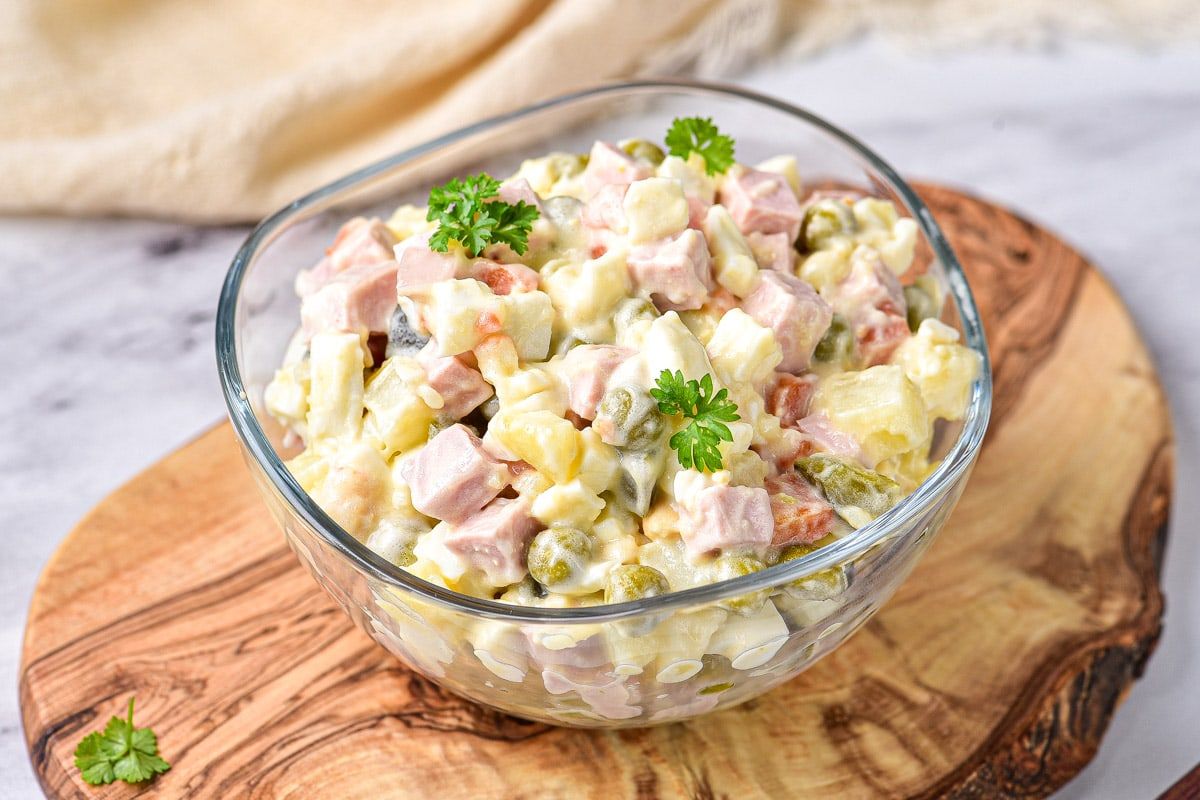
Olivier Salad
This creamy salad, also known as Russian salad, is a staple at any Russian New Year’s table. It’s made with boiled potatoes, peas, carrots, eggs, pickles, and usually chicken or ham, all mixed together with mayonnaise. It’s one of the most popular dishes and is often served alongside other appetizers.
Caviar
There is no Russian New Year's feast without caviar. Whether served on blini (thin pancakes) or on buttered bread, this luxurious treat is enjoyed by many during the holiday season. It’s often paired with a glass of champagne or vodka.
Champagne And Vodka
Speaking of drinks, champagne is the drink of choice to toast the New Year in Russia. People raise their glasses at midnight to celebrate the occasion. Vodka, of course, is also a popular drink at Russian New Year’s parties.
Sweets And Desserts
Families in Russia enjoy a variety of sweets, from honey cakes to fruit preserves and chocolate. Kulich, a sweet Easter bread, is often served during the holiday season, adding sweetness to this celebration.
Russian New Year's Vocabulary
If you’re planning to celebrate New Year’s in Russia or just want to improve your vocabulary, learning these words and phrases is a great start!
Start The New Year Learning Russian With Lingopie
In this post, we've explored how Russians celebrate the New Year with fascinating traditions, delicious food, and heartwarming celebrations. We also learned how to say “Happy New Year” in Russian and the key phrases you need to know to join the celebrations.
If you're interested in learning more about the Russian language, Lingopie is a great way to get started. With authentic Russian TV shows and movies, you can practice at your own pace and gain a deeper understanding of the language and culture. With consistent practice, you’ll be ready to toast like a local before you know it.
FAQs About Russian New Year Traditions
New Year’s celebrations in Russia are full of interesting traditions and customs. Let’s explore some answers to common questions about New Year in Russia and discover what makes it so special.
1. What Do Russians Call New Year’s?
In Russia, New Year’s is called "Новый Год" (Novy God). It is the most significant holiday of the year, marked by large family gatherings, traditional foods, and celebrations that last well into the night.
2. Does Russia Celebrate Christmas Similarly To New Year’s?
No, Russia's Christmas celebration is quite different from New Year’s. While New Year’s is a grand celebration, Christmas in Russia, which is celebrated on January 7th according to the Orthodox Christian calendar, is more focused on religious practices and family. Christmas celebrations often involve church services, with a quieter, more spiritual atmosphere compared to the lively New Year’s festivities.
3. Why Do Russians Celebrate New Year Twice?
Russians celebrate New Year twice because of the difference between the Gregorian and Julian calendars. The Russian Orthodox Church still follows the Julian calendar, which places the New Year 13 days later than the Gregorian calendar used by most of the world. As a result, January 1st is the official New Year, but many Russians also observe the Old New Year on January 14th.


